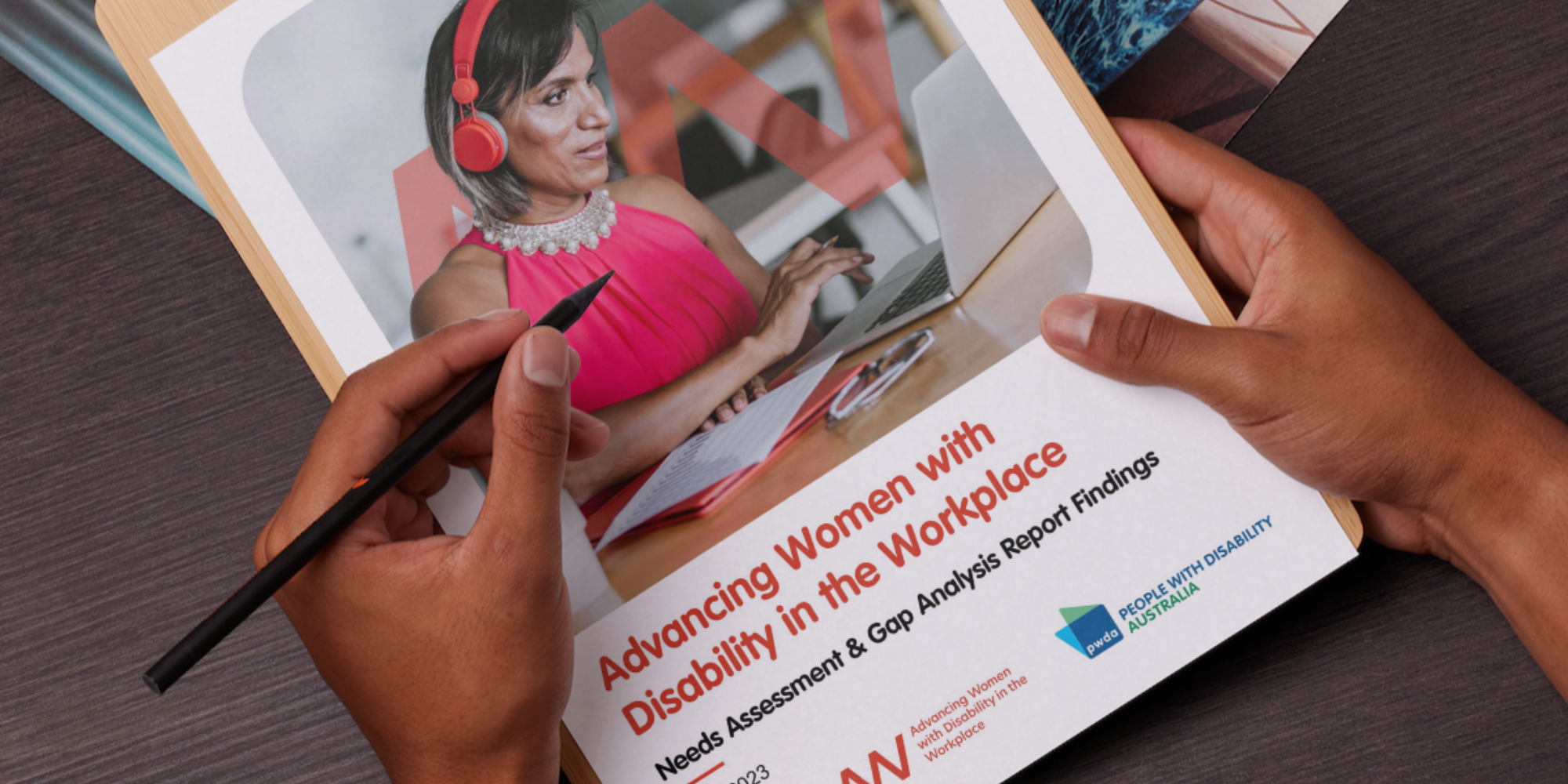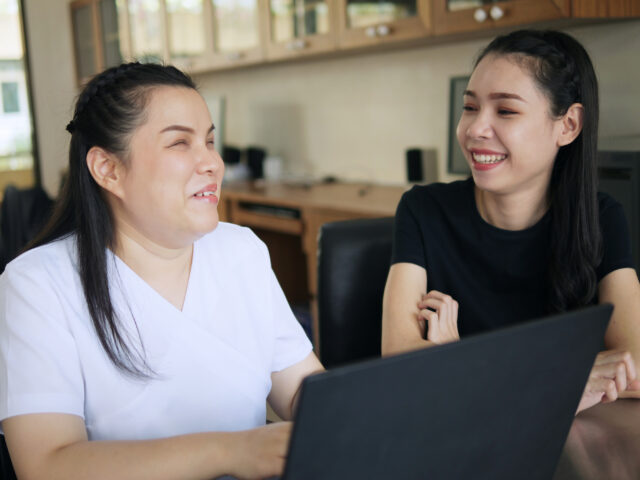
Report findings
The Advancing Women with Disability in the Workplace project seeks to increase the representation of women with disability in leadership roles; increase participation in the workplace by women with disability; and improve the safety of workplaces for women with disability. When combined, it is hoped that the educational and mentoring programs will impact 60 individuals, organisations and/or workplaces and support 39 women to secure sustainable, ongoing employment.
The project is being delivered in a number of phases between January 2023 and July 2026.
Phase 1 has now concluded and PWDA has released a report revealing the barriers to employment and leadership for women with disability.
During the course of the research phase, a literature review, surveys and interviews with women with lived experience and employer organisations were undertaken.
Through surveys and interviews, 159 women with lived experience of disability were engaged to contribute their experiences and a further nine organisations shared their strategies and insights in relation to employing and supporting people with disability in the workplace. A literature review canvassed academic and grey literature from the past five years, highlighting the systemic structural barriers faced by women with disability including sexism, stereotypes, ableism as well as discrimination and prejudice.
The barriers evidenced by the research are wide reaching and cannot be addressed by a single project. However, several consistent themes emerged from the research, that were taken into consideration in compiling the recommendations, including:

- Recruitment: Women with disabilities faced significant obstacles during the recruitment process, with neurodivergent individuals often at a disadvantage. Organisations need to adapt their recruitment practices to accommodate diverse talents, with some successful examples such as Services Australia’s Aurora program specifically supporting people with neurodiversity.
- Adjustments: Reasonable Adjustments, or the lack thereof, posed a major barrier to sustaining employment and accessing leadership roles. Organisations struggled to understand and implement appropriate adjustments, while individuals were often unaware of their rights in this regard.
- Representation: Women with disabilities lacked representation as role models in the workplace, and many chose not to disclose their disability due to safety concerns. Initiatives such as Disability Champions and mentorship programs specifically for people with disabilities aim to improve representation.
- Internal Ableism: Internalised ableism, where individuals discriminate against themselves, also posed a challenge. Many women with disabilities struggled with self-doubt and shame, affecting their willingness to disclose their disability and impacting their belief in their ability to advance in the workplace.
- Lack of Mainstream Opportunities: Women with disabilities who excelled in leadership often had to create their own opportunities, such as starting their own businesses. In certain environments, such as Disabled Person’s Organisations, disability is embraced and championed.
Report recommendations
Based on the research findings, the project team offers the following recommendations for the future development of the project:
- Participating organisations must demonstrate commitment to diversity, equity and inclusion (DE&I) and already employ people with disabilities. Sustainable leadership roles for women with disabilities require an organisation that values diversity, equity, and inclusion. Participation should be limited to organisations with established DE&I initiatives or disability inclusion action plans.
- Adopt a ‘sponsorship’ model for mentorship programs. To support women with disability into leadership roles, they should receive sponsorship from senior peers within their organisations – who provide access to opportunities at work, and advocate for their career advancement.
- Mentees have access to women with disabilities in positional leadership roles. Mentees/sponsorship should have access to external mentors or connections if no women with disabilities are available internally in decision making leadership roles.
- Curriculum must address strategies to overcome internal ableism. Sponsors/mentors should be equipped to understand and address ableism and internal ableism to support women effectively.
- Develop and deliver educational programs by women with lived experience of disability. Authenticity and relevance can be ensured by ensuring educational and sponsorship programs are developed and delivered by women who have lived experience with disability.
- Educational curriculum for employers should address structural barriers, including ableism, stereotypes, discrimination and prejudice. Educational content should cover the challenges faced by women with disabilities in the workplace and recruitment processes.
- Promote the profile of women with disabilities in the workplace. Women with disabilities should feature in all program aspects and materials to foster a supportive environment.
- Establish a Community of Practice (CoP). Both sponsors and mentees should have access to a CoP for support, guidance and to share learnings.
Ultimately, the research phase of the Advancing Women project has identified significant barriers and challenges for women with disabilities in the workplace. By implementing the recommended strategies, we can take meaningful steps towards creating a more inclusive and equitable environment.
